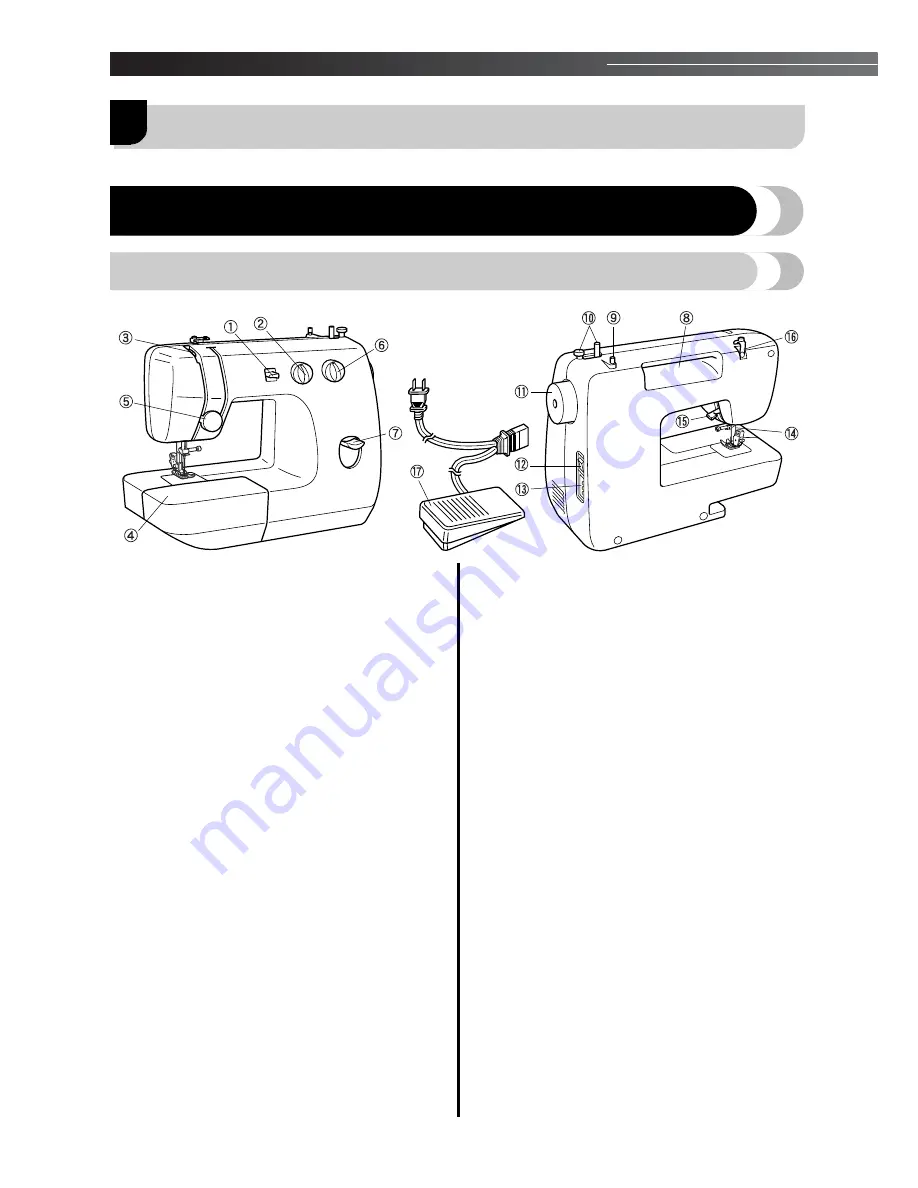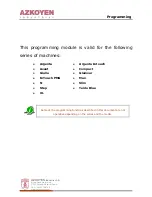
CONOZCA SU MÁQUINA DE COSER
—————————————————————————————————————————
5
1
CONOZCA SU MÁQUINA DE COSER
NOMBRES Y FUNCIONES DE LAS PIEZAS DE LA MÁQUINA
Componentes principales
a
Selector de posición de aguja (página 22)
Desplace este pulsador para seleccionar la posición de
la aguja.
b
Botón de anchura de puntada (página 22)
Gire este botón para ajustar la anchura de la puntada.
c
Tirahilo (página 13)
d
Unidad de cama plana con compartimento para accesorios
(página 6 y 26)
e
Disco de control de la tensión superior (página 24)
Este disco controla la tensión del hilo superior.
f
Botón de longitud de puntada (página 22)
Gire este botón para ajustar la longitud de la puntada.
g
Pulsador de retroceso (página 23)
Presione y mantenga pulsado el pulsador de retroceso
para coser en la dirección opuesta.
h
Asa incorporada
i
Portacarrete (página 10 y 13)
Esta pieza sostiene el carrete de hilo.
j
Devanadora de bobina (página 10)
Esta devanadora enrolla el hilo en la bobina que se
utiliza para el hilo inferior.
k
Rueda
Utilice la rueda para subir y bajar la aguja de forma manual.
l
Interruptor de la alimentación/luz de cosido (página 8)
Utilice este interruptor para encender y apagar el
interruptor de la alimentación y de luz de cosido.
m
Conexión eléctrica para el pedal
Introduzca la clavija del pedal en la conexión eléctrica del
pedal que también proporciona corriente a la máquina.
n
Cortador de hilo (página 23)
Para cortar los hilos, páselos por el cortador de hilo.
o
Palanca del pie prensatela (página 13)
Utilice esta palanca para subir y bajar el pie prensatela.
p
Disco pretensión de devanado de la bobina/guía del
hilo (página 10 y 13)
El disco pretensión de devanado de la bobina/guía del
hilo se utiliza para enrollar el hilo en la bobina y
enhebrar la máquina.
q
Pedal (página 9)
Utilice el pedal para controlar la velocidad de cosido y
comenzar o detener la costura.
Pedal:
Modelo KD-1902 para área de 110-120 V
KD-1902 para área de 110-127 V (solo Brasil)
Modelo KD-2902 para área de 220-240 V
El código de pieza del pedal varía dependiendo del país
o de la región. Póngase en contacto con su distribuidor o
con el servicio de reparaciones autorizado más cercano.
Summary of Contents for 885-403
Page 1: ...Product Code 885 403 ...
Page 48: ......
Page 49: ...Product Code Código de producto 885 403 ...
Page 96: ...English Spanish 885 403 Printed in China XE7071 3013 ...
















































